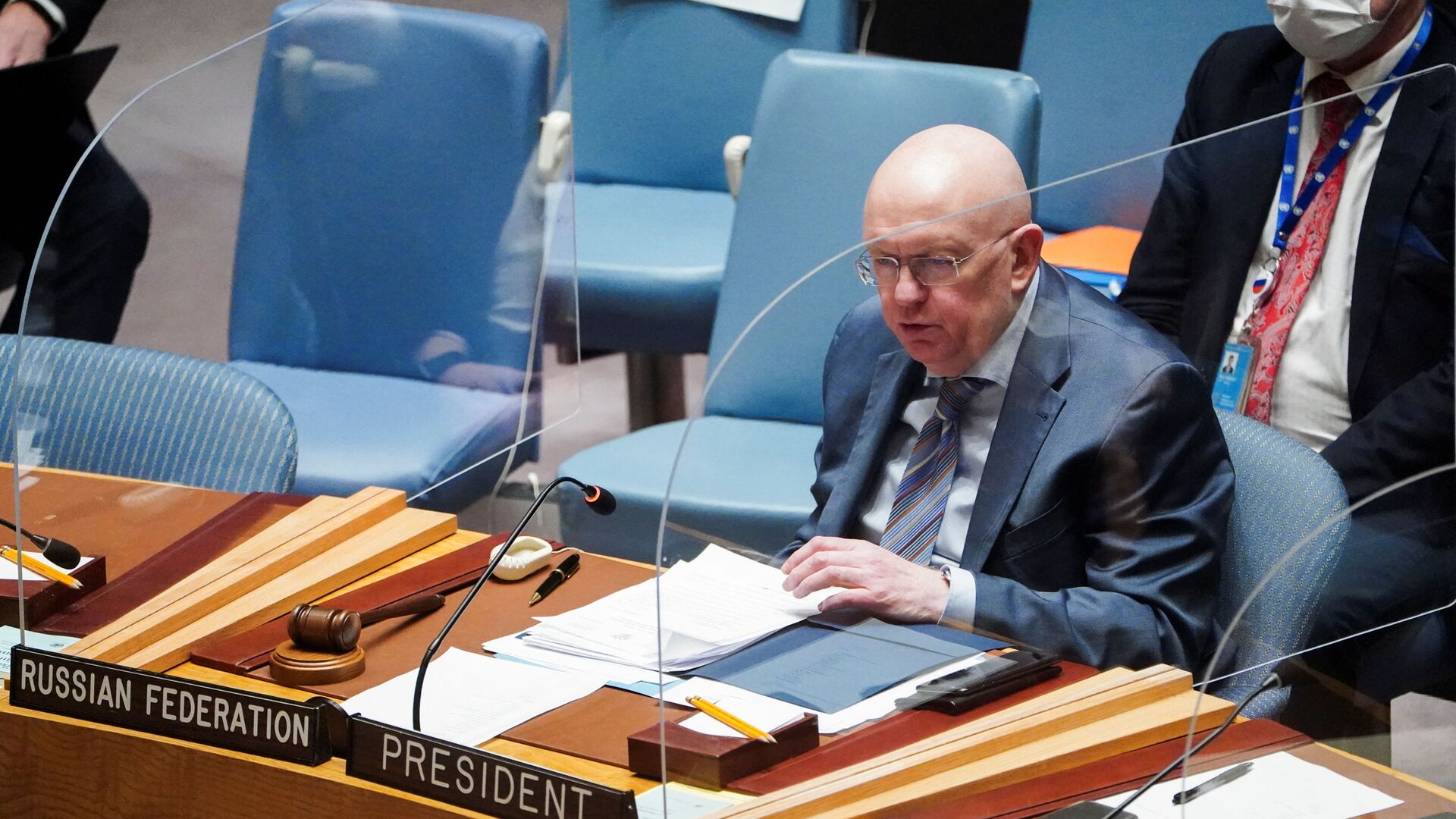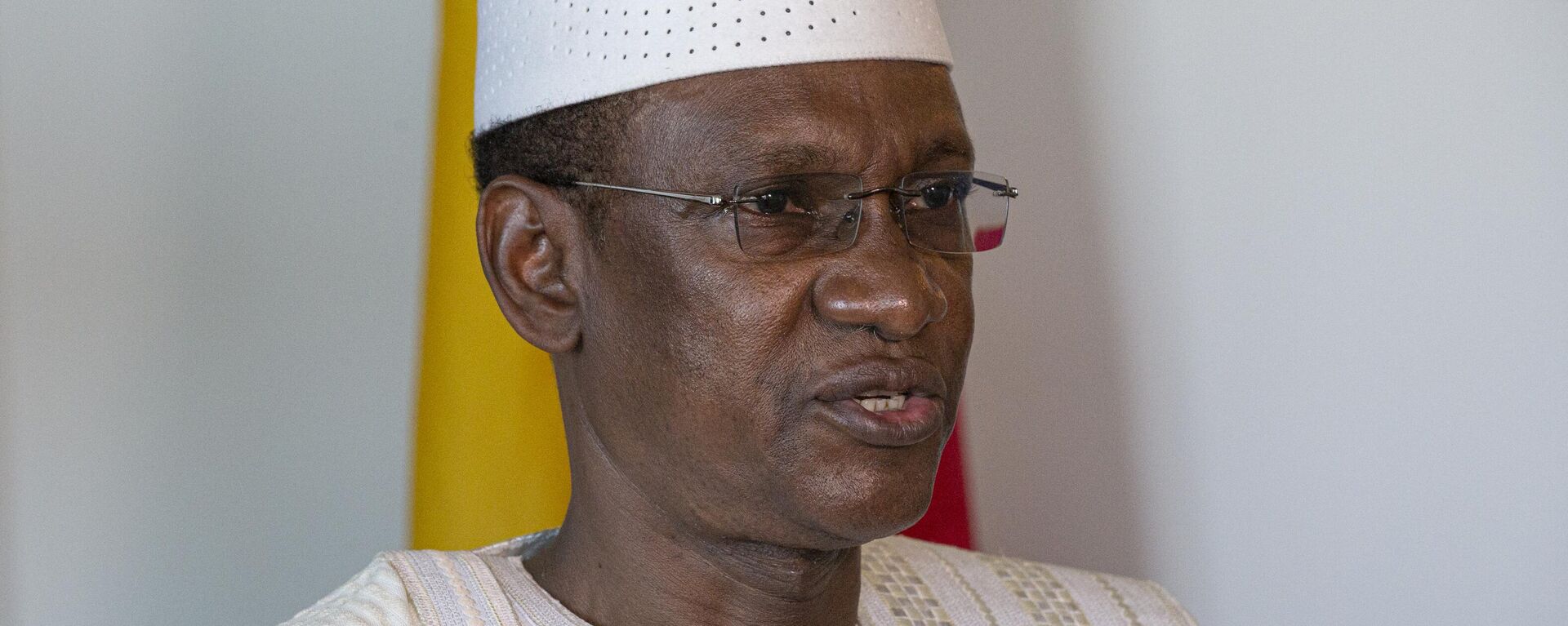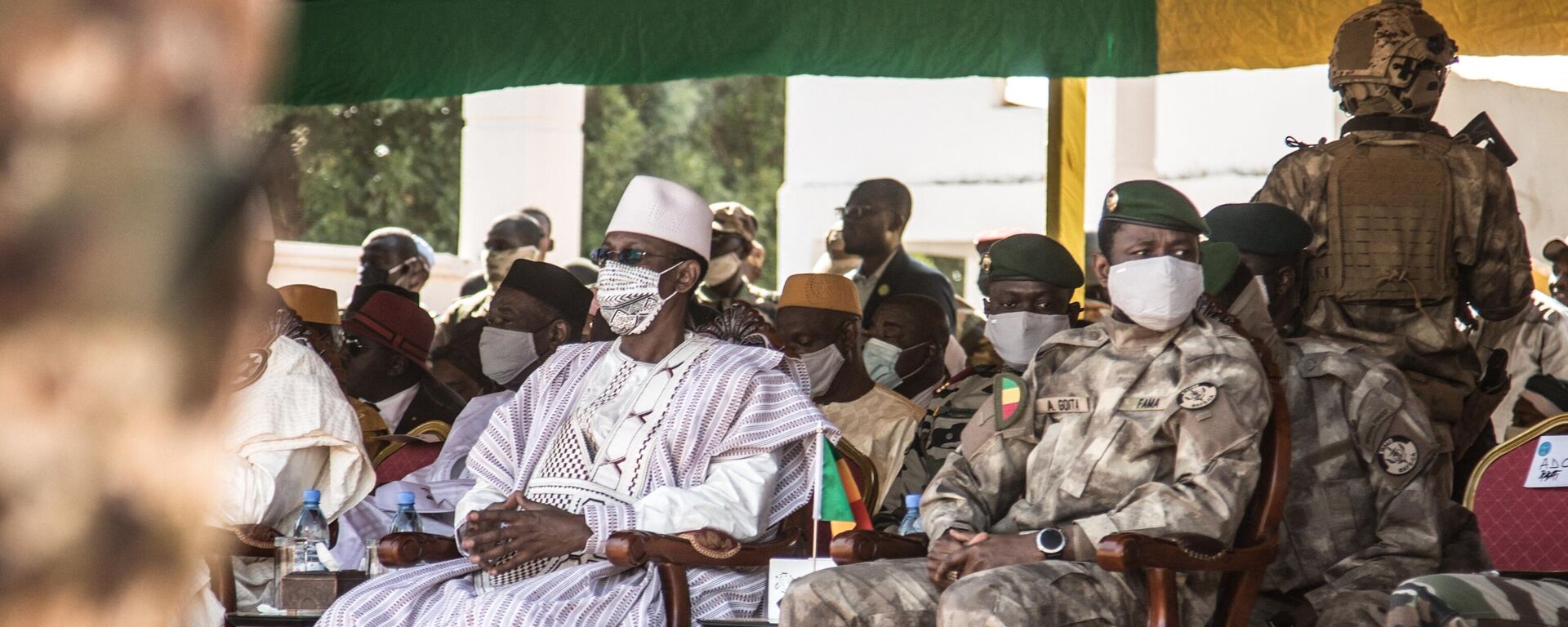https://en.sputniknews.africa/20230413/sahel-region--mali-arent-wests-property-russias-unsc-envoy-says-1058576658.html
Sahel Region & Mali Aren't West's Property, Russia's UNSC Envoy Says
Sahel Region & Mali Aren't West's Property, Russia's UNSC Envoy Says
Sputnik Africa
The Sahel region does not belong to the West or anybody else but to the Africans themselves, said Russian Permanent Representative to the UN Security Council Vasily Nebenzya.
2023-04-13T16:53+0200
2023-04-13T16:53+0200
2023-04-14T08:08+0200
sub-saharan africa
west africa
mali
vassily nebenzia
united nations (un)
military cooperation
https://cdn1.img.sputniknews.africa/img/07e6/02/16/1055294906_0:0:3071:1728_1920x0_80_0_0_36e01ecfe3d7af069a014731597d47ca.jpg
The Sahel region does not belong to the West or anybody else but to the Africans themselves, said Russian Permanent Representative to the UN Security Council Vasily Nebenzya, delivering his remarks during the council's meeting on the situation in Mali. During the meeting, the representative of Albania accused the military of Mali of violating human rights, saying that since they started conducting military operations, violations and abuses have significantly increased. Apart from that, the permanent representative of France, Nicolas de Riviere, mentioned a "massacre" allegedly committed in one of the settlements about a year ago, saying that further information must be released about the incident. Nebenzya, for his part, stated that Russia provides the Malian army with comprehensive assistance in terms of increasing its combat capability, training military personnel and law enforcement officers. According to the Russian representative, the armed forces of Mali have recently demonstrated their capability in effectively combating terrorism by increasing their potential in countering the terrorist threat and converting it into real results "on the ground." He also expressed concern over the decision of some troop-contributing countries to end or suspend participation in the MINUSMA, while noting the negative reaction of some states to Russia's support for the nation. He voiced regret that the issues of geopolitical competition still haunt these countries, underlining that they have to renounce their own "neo-colonial habits."In particular, he called on Western countries to let Malians and people of other countries in the region solve their problems on their own, and involve those partners they have chosen themselves.The Russian diplomat stated that the destabilization in the Sahel region and Mali in particular is the result of "irresponsible military actions of Western countries in Libya." Nebenzya reiterated that the long-standing presence of Western forces in this part of the continent hasn't brought any tangible results.Talking about MINUSMA’s operations in the region, the envoy stated that they must be carried out in close coordination with the host country and with respect for its sovereignty. Nebenzya also noted that without stabilization of the situation in Mali, where various terrorist groups still carry out raids against the population, it's impossible to achieve stability in the whole Sahel region.He explained that the postponement of the constitutional referendum, planned to be held on March 19, took place for valid reasons, emphasizing the need to ensure the security of Malians amid recent troop withdrawals, referring to the withdrawal of French Barkhane Mission troops and the European Union’s Takuba force. After the 2021 coup, the military government that came to power in Mali pledged to return civilian rule. However, the constitutional referendum, initially set for March 19, 2023, was postponed, as the country had to establish representations of the election management body in all regions.
https://en.sputniknews.africa/20230308/1058576797.html
https://en.sputniknews.africa/20230321/1058577599.html
west africa
mali
Sputnik Africa
feedback@sputniknews.com
+74956456601
MIA „Rossiya Segodnya“
2023
News
en_EN
Sputnik Africa
feedback@sputniknews.com
+74956456601
MIA „Rossiya Segodnya“
Sputnik Africa
feedback@sputniknews.com
+74956456601
MIA „Rossiya Segodnya“
west africa, mali, sahel region, united nation, united nations security council, russian permanent representative to the un security council vasily nebenzya, neocolonialism, military cooperation
west africa, mali, sahel region, united nation, united nations security council, russian permanent representative to the un security council vasily nebenzya, neocolonialism, military cooperation
Sahel Region & Mali Aren't West's Property, Russia's UNSC Envoy Says
16:53 13.04.2023 (Updated: 08:08 14.04.2023) On April 12, the UN Security Council held a meeting on the situation in Mali, reveiwing recent political developments in the country, where as a result of the 2021 coup the military government seized power. According to the UN, the situation in this West African nation poses a threat to the overall stability in the larger Sahel region.
The Sahel region does not belong to the West or anybody else but to the Africans themselves, said Russian Permanent Representative to the UN Security Council Vasily Nebenzya, delivering his remarks during the council's meeting on the situation in Mali.
During the meeting, the representative of Albania accused the military of Mali of violating human rights, saying that since they started conducting military operations, violations and abuses have significantly increased. Apart from that, the permanent representative of France, Nicolas de Riviere, mentioned a "massacre" allegedly committed in one of the settlements about a year ago, saying that further information must be released about the incident.
Nebenzya, for his part, stated that
Russia provides the Malian army with comprehensive assistance in terms of increasing its combat capability, training military personnel and law enforcement officers.
"Our bilateral cooperation is carried out at the request of Bamako and in strict accordance with international law," Nebenzya stressed.
According to the Russian representative, the armed forces of Mali have recently demonstrated their capability in effectively combating terrorism by increasing their potential in countering the terrorist threat and converting it into real results "on the ground."
He noted that Russia also played a certain role in these developments. Moreover, he highlighted, the country "have not received any complaints from African partners regarding" the aspects of its interaction with them.
He also expressed concern over the decision of some troop-contributing countries to end or suspend participation in the MINUSMA, while noting the negative reaction of some states to Russia's support for the nation. He voiced regret that the issues of geopolitical competition still haunt these countries, underlining that they have to renounce their own "neo-colonial habits."
In particular, he called on Western countries to let Malians and people of other countries in the region solve their problems on their own, and involve those partners they have chosen themselves.
"In fact, their claims [Western countries] have nothing to do with concern for the well-being of Mali, on the contrary, they emphasize that the opinion of Malians themselves does not bother them, and never did," he underscored.
The Russian diplomat stated that the destabilization in the Sahel region and Mali in particular is the result of "irresponsible military actions of Western countries in Libya." Nebenzya reiterated that the long-standing presence of Western forces in this part of the continent hasn't brought any tangible results.
"In this regard, we call on our colleagues at the Council to admit their mistakes and give up neo-colonial habits. This region does not belong to you," Nebenzya pointed out.
Talking about MINUSMA’s operations in the region, the envoy stated that they must be carried out in close coordination with the host country and with respect for its sovereignty. Nebenzya also noted that without stabilization of the situation in Mali, where various terrorist groups still carry out raids against the population, it's impossible to achieve stability in the whole Sahel region.
He explained that the postponement of the constitutional
referendum, planned to be held on March 19, took place for valid reasons, emphasizing the need to ensure the security of Malians amid recent troop withdrawals, referring to the withdrawal of French Barkhane Mission troops and the European Union’s Takuba force.
After the 2021 coup, the military government that came to power in Mali pledged to return civilian rule. However, the constitutional referendum, initially set for March 19, 2023, was postponed, as the country had to establish representations of the election management body in all regions.



